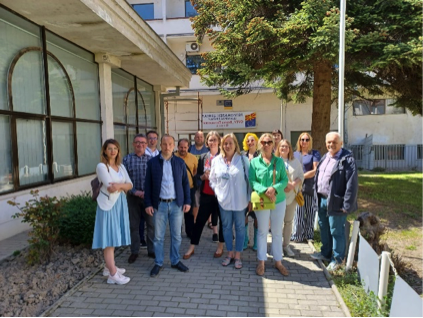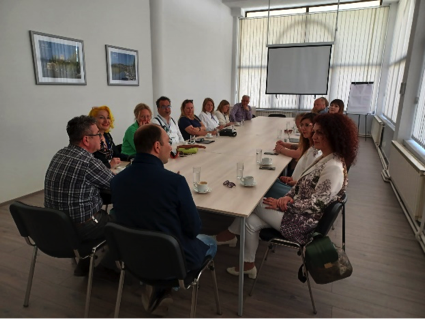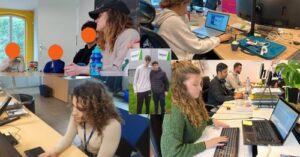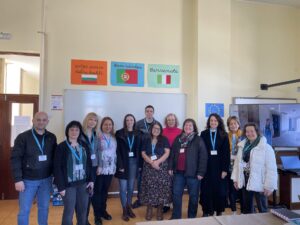The Digital Economy and Society Index (DESI) 2020 identifies that 42% of European Citizens lack basic digital skills. While the current COVID-19 crisis has witnessed an increase in the number of internet users, ‘the development of digital skills does not come automatically with increased usage (DESI Thematic Chapters, 2020).’ As part of the Skills Agenda, the Upskilling Pathways initiative recommends the introduction of ‘coherent provision to improve the digital skills of the many millions of low-skilled or low-qualified’ citizens (On the Digital Education Action Plan, 2018).
Since 2013, the European Digital Competence Framework (DigComp) has acted as a reference for the development and strategic planning of digital competence initiatives at both European and Member State levels. The recently published DigComp at Work Implementation Guide (2020) evidences a wide range of digital upskilling-related services currently active across the Member States. However, the group in most urgent need identified above as ‘low-skilled or low-qualified citizens, experience barriers around access to education and training. E-learning is significantly less accessible to low socio-economic groups; the move to online learning highlights the tangible barriers faced by low-income households, and households of low education (Huhtinen, Elm, 2020).
Aware of the above context, and in response to the urgent need for digital upskilling in the rapidly evolving technological society resulting from COVID-19, ADVANCE (An innovative approach to reduce the Digital divide in Vocational Education and Training project is an initiative launched to develop and implement digital upskilling tools, in order to deliver quality and inclusive training/education for the most underrepresented in our society. The ADVANCE project will target groups of low-skilled citizens who most often lack self-confidence, they need to have resources focused on them and targeted to them otherwise they can become disillusioned with education and training. This group must now navigate accessing learning tools in the digital environment The implementation of digital upskilling and learning tools must be tailored to reach these at risk communities to prevent further socio-economic disadvantage in the COVID-19 era. The ADVANCE project aims to meet this challenge.
The ADVANCE partnership is composed of six partners from: The Republic of North Macedonia, Belgium (2), Romania, the Netherlands and Scotland. Organisations include: a public body facilitating educational opportunities; two NGO’s focused on training an education, centre for adult education and VET; an SME specialised in translating educational problems and private organisation responsible for supporting general secondary education and vocational education and training.
The ADVANCE partnership proposes an intervention at European level to prevent our low-skilled citizens being left behind in the digital environment. We will develop and deliver cohesive learning/training resources by enhancing digital and learning to learn competences. Materials will be delivered at national level, and adapted for use across the Member States, directed towards those with limited skills for accessing resources, to give them access to learning and training and to support them through a learning journey.
The ADVANCE project contributes to the upskilling, thus empowering, low-skilled citizens by:
- creating an overview of practices in place in Europe to self-assess digital competences in low-skilled citizens;
- employing digital self-assessment tools adapted to the target group to the DigComp framework;
- applying qualitative and quantitative indicators of our target groups’ ability to access educational/training resources;
- using the acquired indicators, preparing a digital skills training package and testing it on our target groups;
- developing and delivering a digital training app and learning resource to facilitate upskilling and access to opportunities.
By doing so, partners produce the following results:
- IO1 – Digital Competence Mapping and Learner Survey;
- IO2 – Digital Upskilling Tools Package;
- IO3 – Learning to Learn in the Digital Environment.

By implementing the project activities and reaching expected results, the ADVANCE project enhances the digital and learning to learn competences of low-skilled citizens, enabling them to confidently engage in further training/education and employment.





